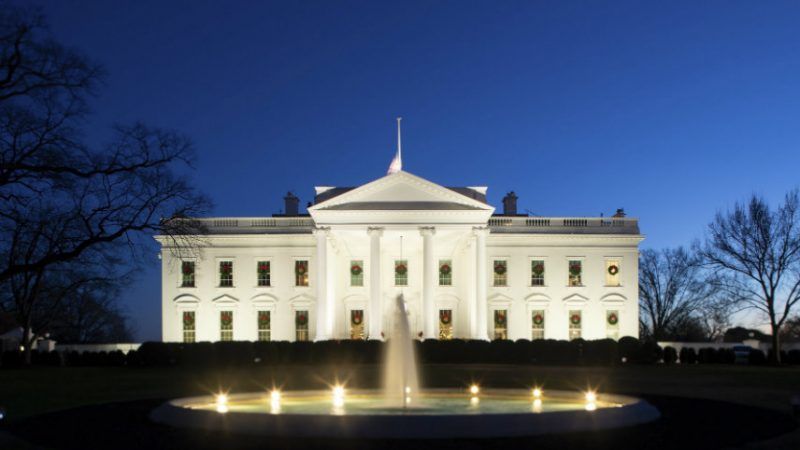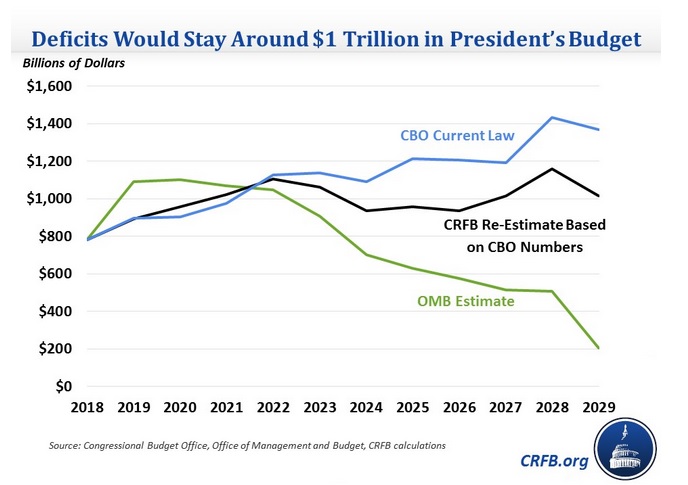Trump's Budget Effectively Guarantees Trillion-Dollar Deficits Until 2030
Once you get past the rosy economic expectations, it's clear that Trump's budget is not a serious effort at fiscal restraint.

Officially, President Donald Trump's proposed budget would add an estimated $7.9 trillion to the national debt over the next 10 years, even as annual deficits are projected to decline after hitting a high of $1.1 trillion in 2020.
But as I wrote earlier this week, the White House's offical projections for future deficits are predicated on some suspiciously generous estimates about future economic growth. Most economists, like those at the Federal Reserve, expect the U.S. economy to grow by about 2 percent annually for the next decade—but the Trump budget projects 3 percent growth. That sounds like a small difference, but one that inflates future federal government revenue by 9 percent over ten years, which makes the budget appear closer to being balanced than it might actually be.
A more conservative estimate of future revenue growth is offered by the Congressional Budget Office (CBO), which expects just 1.8 percent growth on average over the next decade. While the CBO has not yet issued an official assessment of Trump's new budget plan, the fiscal hawks at the Committee for a Responsible Federal Budget (CRFB) have taken the CBO's growth projections and applied them to Trump's budget.
The result? Trillion-dollar deficits as far as the eye can see.

"Thus, instead of putting debt on a downward path, the budget would result in debt rising throughout the next ten years, though at a slower pace than current law," the CRFB concludes.
All these projections are merely educated guesses, of course, and a bad recession could easily make all of them look foolish—all the more reason to be conservative in guesses about future economic growth.
Slowing the growth of the national debt is important, but with the federal government aready $22 trillion in the hole, a budget that doesn't balance for more than a decade is taking us in the wrong direction. If history is any guide, Congress will likely discard much of the president's budget and increase spending across the board anyway—which is why the president should propose serious fiscal restraint as a starting point for negotiations. Once you get past the rosy economic expectations, it's clear that Trump has not done that.


Show Comments (9)